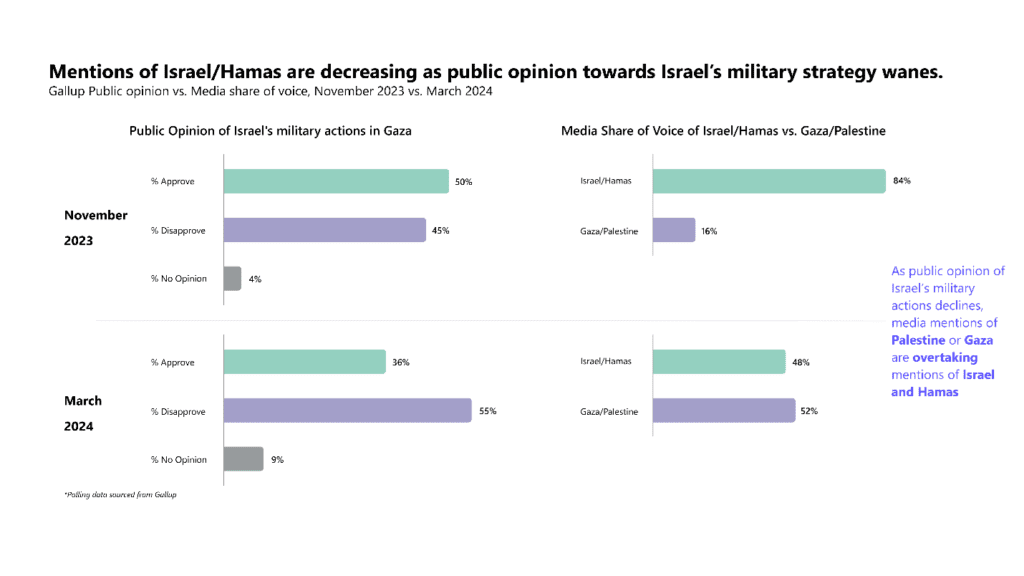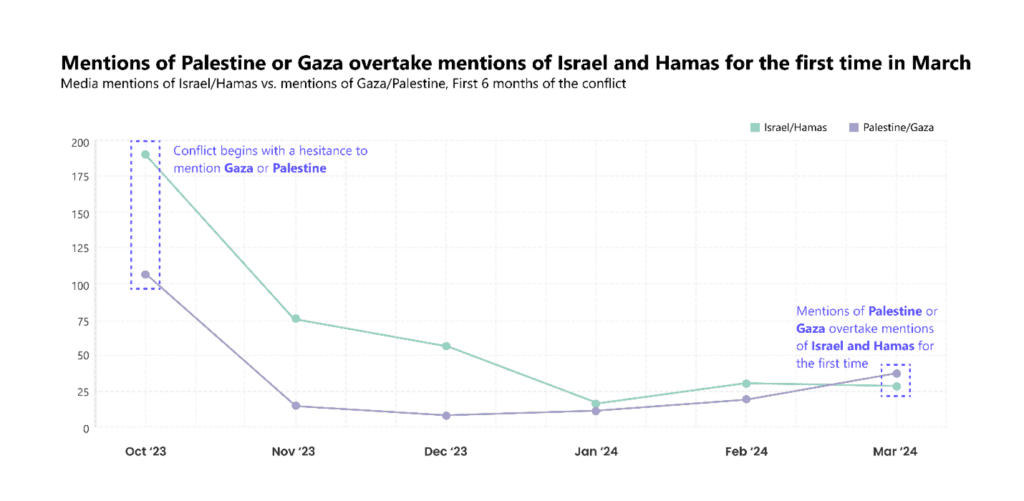
As the Israel-Hamas war has unfolded, stakeholders are re-evaluating companies based on their ties to the conflict.
PublicRelay examined how public opinion and media reporting on major brands has evolved since the start of the conflict. We found that ties to the Israeli government are a looming corporate reputational risk. And that threat is set to grow as Americans become increasingly sympathetic to the humanitarian crisis in Gaza.
There’s been a remarkable shift in public opinion in the last six months

Polling data from Gallup reveals that early opinion towards Israel’s military strategy was in the country’s favor. At this point, Israel was still reeling from Hamas’ October 7th attacks.
The Israeli government’s reaction was at the center of news coverage in November. The media commended corporate leaders for backing Israeli citizens in need. This included Google’s Sundar Pichai and JPMorgan’s Jamie Dimon, who expressed steadfast support for the country.

But as time marched on, Americans became more aware about the humanitarian crisis in Gaza. By March, public opinion had largely turned against the Israeli military strategy. Media reporting reflected this, as coverage of Palestine and Gaza overtook mentions of military conflict between Israel military and Hamas for the first time.
As the attention on Gaza has grown, so has the backlash on brands’ ties to the Israeli military. The mainstream media that once praised businesses for showing support now spotlight accusations of bias against Palestine.
Exposure to the conflict is both an external and internal communications issue
We found that some of the largest companies in the world have been unprepared to respond to consumer backlash. Both McDonalds and Coca-Cola have already reported declining sales linked directly to boycotts. This is especially a risk for companies with younger audiences, who have been the driving force behind protests.
But the consequences go beyond your customer base. Protests by activist employees have steered the media cycle in recent months. This creates an internal communications issue that could put all companies with ties to the Israeli government at risk.
Google, for example, has been traditionally known for their open work culture. In recent months, the company faced internal backlash over their Israeli military contracts. The tech giant has limited company message boards and fired protesters, acting out-of-line with their cultivated brand image. High profile outlets have called out Google’s ambiguous public statements on their actions. Their response has fueled a narrative of unpreparedness around internal dissent.
Plan your response today
As American opinion continues to turn against Israel’s military actions, it’s clear that organizations with ties to Israel’s military have unavoidable exposure to the public discourse. Smart leaders should assess their risk profile relative to their customer and employee bases and plan responses now. Communicators need to prepare targeted response strategies ahead of time to effectively address concerns from external and internal stakeholders alike.
To learn more about our research contact us here.




